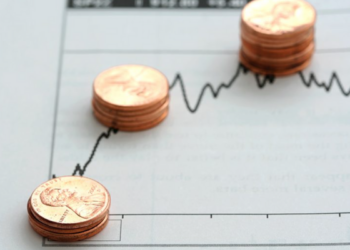The Minister of Finance, Budget and National Planning, Mrs Zainab Ahmed, has revealed that the inflation rate in Nigeria is largely driven by the cost of transportation.
This disclosure was made by the Minister during a virtual consultation and stakeholders engagement to discuss the economic and fiscal policy drivers underpinning the Finance Bill 2020, on Friday, November 13, 2020.
The recent increases in the retail pump price of petrol, which is used by most of the commercial transporters as energy for the vehicles, have led to sharp increases in transport costs.
READ: Lower disposable income and rising food inflation is a potential crisis
READ: FG rejects calls for tax reduction, offers tax relief for donors to intervention funds
According to the latest report from the National Bureau of Statistics (NBS), the average transport fare paid by commuters for bus journeys within a city increased by 7.92% month-on-month and 63.88% year-on-year to N309.73 in September 2020.
Ahmed revealed that the finance bill contained some interesting new proposals like fiscal relief for mass transit, which is designed to provide support to mass transit by reviewing the duties regime. She said this is because the Federal Government recognizes transportation as one of the major cost drivers in the economy.
READ: NCC boosted Federal Government revenue by N344.71 billion in 5 years
READ: Africa: Ghanaian inflation rate drops for the 3rd straight month to 10.1%
She said, “If you look at the rate at which our inflation is going, and you disaggregate the components, you will find that inflation is largely driven by transport cost. So, the essence here is to reduce transportation cost so that businesses will have ease and pass benefits to eventual consumers.”
Nairametrics had reported that Nigeria’s inflation rate rose to 13.71% (year-on-year) in September 2020, indicating 0.49% point higher than 13.22% recorded in August 2020, according to Consumer Price Index (CPI) report, released by the National Bureau of Statistics (NBS).
READ: Crypto bounty: $1 million up for you
READ: Nigeria’s inflation rate hits 13.71% as food prices soar
The report also states that Nigeria has endured a persistent increase in inflationary rate, growing from 12.13% in January to 13.71% in September, which is the highest recorded in 30 months.
Analysts at Financial Derivatives Company Limited, led by foremost economist Bismarck Rewane, said last week that headline inflation was projected to rise to 14.5% in October from 13.71% in September.
READ: Nigeria’s food Inflation rises by 110.5% in five years
They said it meant that inflation would be rising for the 14th consecutive month and would also be the highest level in 33 months. Food inflation will be the most affected as it is estimated to climb to 17.05%.
READ: FAAC disburses N682.06 billion to 3 tiers of govt in September [Full-List]





















